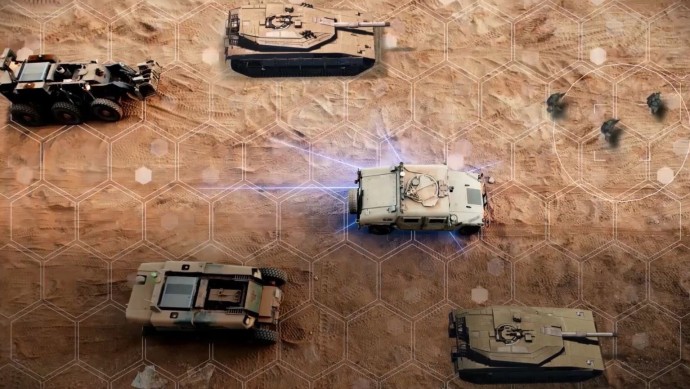What will the looming Israeli elections mean for the country’s anchor alliance with North American Jewry? How could escalations in Gaza or Ukraine impact Jewish interests? These are just two of the top concerns weighing on Jewish communities, but rather than worry, now is an ideal time to game-out future scenarios.
Those in positions to guide and steward Jewish affairs in Israel and across the Jewish world all-too-often find themselves in crises for which they have not drilled, even though careful preparation and planning are utilized in so many other realms. As we explored in-depth at the Z3 conference in Palo Alto, there is much to be gained from the broader adoption and utilization of crisis simulations.
Gaming is one of the most highly developed practices in the national security and foreign policy community, which explains why Israelis are so comfortable with war gaming and why the concept is mostly foreign to Jewish leaders elsewhere.
Typically conducted in secret and outside public view, simulations are considered an essential method for preparing for unpredictable scenarios.
Beyond crises, simulation gaming also provides a way to test assumptions and expectations, and to stress test decision-making processes. Yet, it remains overlooked by most Jewish leaders and communities.

An invaluable tool
The Rand Corporation first professionalized simulation gaming during the Cold War. Games typically include multiple players, usually simulating state or non-state entities. This can include an array of players, from the UN to terror or insurgent groups, all interacting during a hypothesized scenario.
Roles are often played by those with some degree of prior knowledge and familiarity, to keep the game grounded in potential developments closely tied to what may unfold in reality.
However, it is not uncommon for players to be assigned roles that do not correspond with their day-to-day setting, including sometimes stepping into the shoes of an adversary, rival or another party to a dispute.
Not for the faint of heart, gaming and simulations are an intense analytical exercises, at times, even adrenaline infused. Gaming allows for testing assumptions, exploring new solution sets and tradeoffs, practicing crisis response protocols and deepening one side’s understanding of other actors in multi-party relationships.
As such, simulations are designed to fine-tune policies and response mechanisms and avoid overreliance on improvisation.
From the Pentagon and State Department, to the IDF and Israel’s other security agencies, war games and table-top exercises are essential tools.
Gaming is also utilized by academics and non-government stakeholders, including at the leading think tanks and universities where we have served, and in crossover settings where officials and non-governmental experts meet.
Playing Jewish peoplehood
Even more than the traditional foreign policy realm, Israel-Diaspora ties are incredibly complex, given that lines of responsibility and authorities lack the clarity and boundaries of state-to-state relations.
Think back to late June 2017, when the Israeli government suspended the Kotel framework. Emotions ran high, sharply defining immediate responses and shaping discourse in ways that deepened divides. No one had prepared for such a scenario – even though it was far from unimaginable.
The fallout from last year’s Gaza war is another case in point, as were the attacks in Charlottesville, Pittsburgh, Colleyville and elsewhere.
There are, of course, aspects of Israel-Diaspora affairs that are distinct from traditional war games. Whereas state-to-state relations are typically defined by raw power dynamics, Jewish politics include a strong element of identity. National security crisis scenarios tend to accelerate, sometimes at lightning speed. A conflict in Iran or Gaza may unfold with rapidity, whereas Israel-Diaspora and internal Jewish crisis scenarios typically move more slowly.
Take for example disagreements between Israeli and American Jewish leaders during the decades-long campaign for Soviet Jewry, differences and disagreements often played out over years until consensus solutions were identified and implemented.
That said, fast-paced scenarios can unfold, take the “Who is a Jew” crisis in the late 1980s, the unraveling of the Kotel compromise or the Knesset’s 2018 vote on the Nation-State bill.
The kerfuffle Israel’s newest former prime minister, Naftali Bennett, caused back in January is now another data point.
For think tanks, advocacy organizations and other NGOs working in the Israel-Diaspora space, the use of simulations and gaming can serve not only to prepare for future predicaments but also to mitigate conflicts of interest and policy divides.
Platforms like the Z3 Project, which are establishing new touchpoints for dialogue and are investing in the still-formative Jewish peoplehood framework have already started experimenting with gaming as a tool to ensure we are prepared for unexpected challenges that lie ahead.
Through our diverse sets of experiences, in Israel and the US, both in and out of government, we can attest to the utility and importance of simulations. We encourage stakeholders to integrate this methodology. Its adoption is an innovative and long-overdue step, both for internal planning processes and as a more stakeholder-focused, interactive engagement platform.
Dr. Ehud Eiran is a professor at Haifa University and previously served as an adviser in the Prime Minister’s Office and as a researcher and lecturer at Harvard University; Dr. Michal Hatuel-Radoshitzky is a former research fellow at Israel’s Institute for National Security Studies (INSS); Dr. Scott Lasensky was an adviser on Israel, the Middle East and Jewish affairs in the Obama administration, and worked at several think tanks, including the Brookings Institution, the Council on Foreign Relations, the US Institute of Peace and INSS. He is currently a senior adviser to ENTER: the Jewish Peoplehood Alliance.
